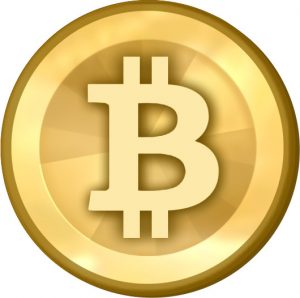In the aftermath of the recent Bitcoin ETF approvals, BlackRock’s Larry Fink revealed that soon everything will be “ETF’d” and tokenized, threatening to fractionalize not just existing assets and commodities, but the natural world, reducing most living things into Wall Street financial products to be traded on a single, universal ledger.,**Title: The Future of FinTech: Tokenization and the Rise of ETFs**
**Introduction**
The approval of Bitcoin ETFs and the recent statements made by BlackRock’s Larry Fink about the tokenization of everything have sparked discussions about the future of finance and the potential impact on various industries. This article aims to explore the concept of tokenization, its relationship with ETFs, and the potential implications for both the financial world and the natural world.
**The Rise of ETFs and Tokenization**
ETFs, or Exchange-Traded Funds, have gained immense popularity in recent years. These investment vehicles offer investors exposure to a diversified portfolio of assets, while allowing for easy buying and selling on stock exchanges. The approval of Bitcoin ETFs by regulatory authorities has further legitimized the cryptocurrency market and opened up new avenues for investors.
Larry Fink’s statement about the tokenization of everything reflects a growing trend within the financial industry. Tokenization involves the conversion of tangible and intangible assets into digital tokens that can be securely and easily traded on blockchain networks. This process allows for the fractionalization of assets, making them more accessible to a wider range of investors.
**The Impact on Traditional Assets**
With the increasing adoption of tokenization, traditional assets like real estate, precious metals, and even works of art can be broken down into digital tokens. This opens up opportunities for investors to own fractional shares of these assets, providing liquidity and diversification benefits. However, it also raises concerns about the potential financialization of the natural world.
**The Financialization of the Natural World**
The tokenization of the natural world implies that assets like land, forests, and even endangered species could be turned into financial products and traded on a universal ledger. While this may offer potential benefits in terms of conservation funding and sustainable development, it also raises ethical and environmental concerns. Critics argue that reducing living things to fungible financial assets may lead to the commodification and exploitation of nature.
**Regulatory and Ethical Considerations**
As the tokenization of assets continues to gain traction, regulators and policymakers will need to address the legal, ethical, and environmental implications associated with this trend. Balancing financial innovation with responsible investing practices will be crucial to ensuring the sustainable growth of the tokenized economy.
**Conclusion**
The rise of ETFs and the increasing tokenization of assets have the potential to transform the financial landscape. While this innovation brings opportunities for investors and facilitates access to a wider range of assets, it also raises concerns about the financialization of the natural world. Regulators and industry participants must work together to strike a balance between financial innovation and sustainable practices, ensuring that the tokenized economy serves the greater good.
*[Video: Optional]*
*[Video frame: Optional]*



